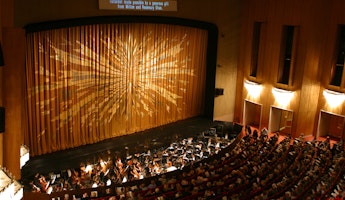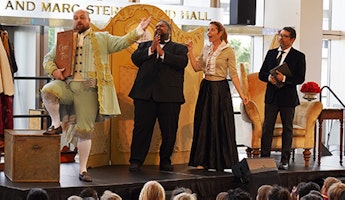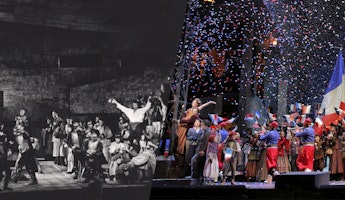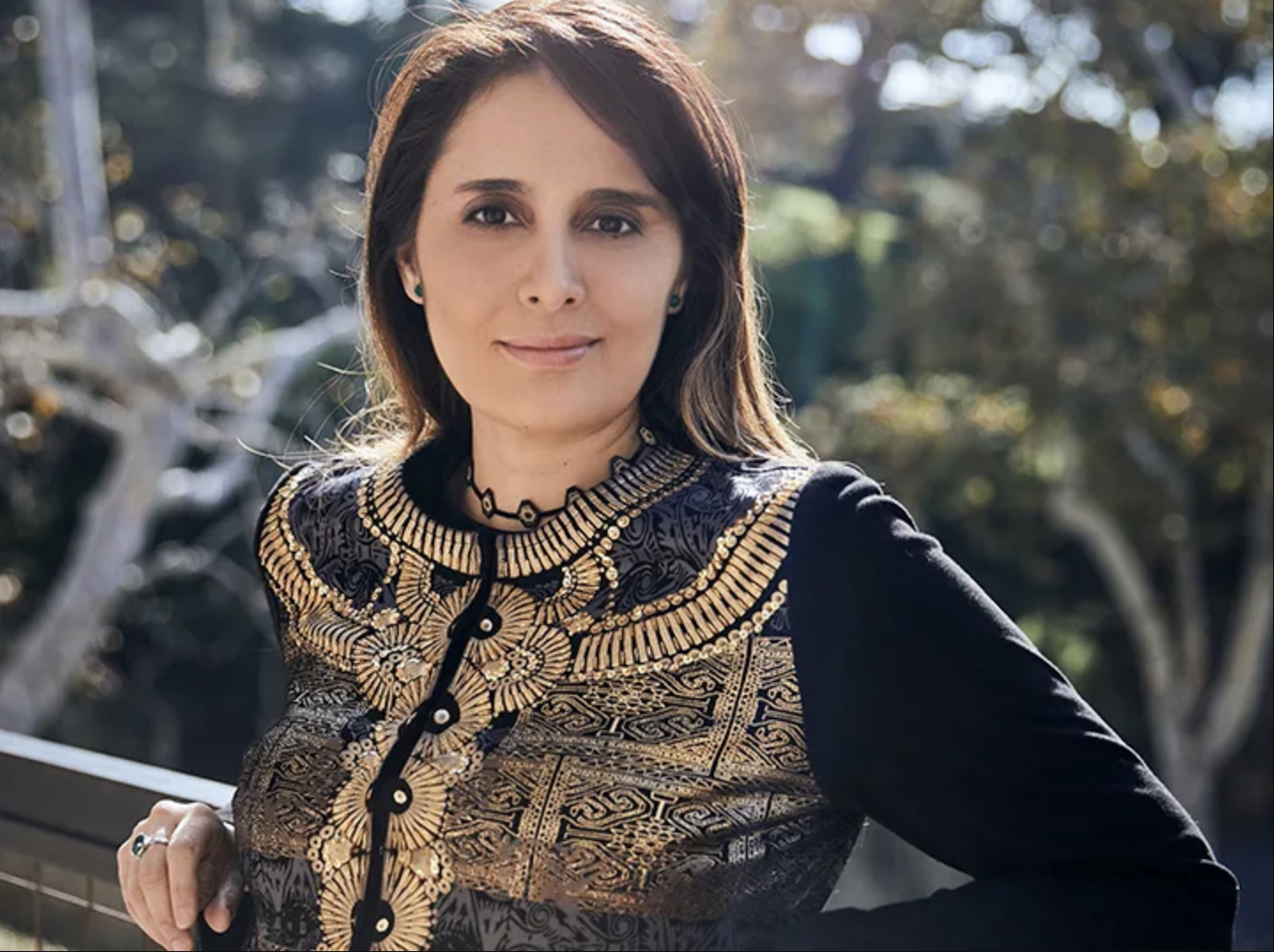Blog
September 15, 2022
Rising Star: Meet Lina González-Granados
This season's opening production of Lucia di Lammermoor introduces LA Opera audiences to the company’s new Resident Conductor, Lina González-Granados. The Colombian-born conductor made her much-celebrated LA Philharmonic debut in August at the Hollywood Bowl and then went straight into Lucia rehearsals. During her first week here, she took some time to talk with us about her new role in Los Angeles.
Was there a particular moment that inspired you to become a conductor?
My background was musical, but not in the traditional way. In Colombia, we have salsa, folkloric music from the Pacific, and music from the countryside, but it’s not necessarily classical.
I started as a pianist. As much as I loved the piano, I hated to be alone, and I wondered about professions in music where I could be with the most people. In my first semester in college, my choir did a Gabriel Fauré piece called Cantique de Jean Racine. It was very difficult, but we pulled it off. There was something about the energy that the conductor brought to the table with her hands. My relationship with the piano had always been a love-hate one; I felt like my intellect was bigger than what my hands could do. Seeing this fantastic, powerful woman conduct made me think that if she could do it, I could do it too.
I also remember singing Carmina Burana in a gigantic choir of, I think, 300. But the conductor made me feel like I was a soloist. The way he looked at us felt very powerful.
What excited you about coming to LA Opera?
Everything about LA Opera that was presented to me aligned with my core value as a human and as a musician. The fact that we embrace diversity as our normal is fantastic and quite rare. I come from a very different background than some of the people who are brought to this craft. This vision makes me feel like I belong to something that’s greater than me. It makes it easy to do my job. It really is, because there is a different kind of respect when people don’t have to learn how to respect you or embrace you. That is the biggest thing.
I found that the programming this season, including Lucia, was something that attracted me. What I hope to achieve is to contribute to the fabric of the company with my artistic voice, my programming voice. I want people to think of me as someone who cares about the craft and wants to advance it as much as possible so that it becomes an art for everyone. That’s what happens here but it doesn't always happen elsewhere.
I’ve loved it here since the beginning. I’ve found colleagues I can rely on, and I already feel very much at home.
What can we expect from you as a conductor?
One of my strong points is flexibility. I would never say “this is my full vision of the music.” Instead, I say “let’s work in these parameters and all of us will adjust.” We make it as fluid and as alive as possible while respecting the composer’s intentions. If you come to two Lucia performances, they're going to be different from a musical standpoint. That’s my goal. If it’s up to me, I want every performance to be as different as it can be. We might perform an aria differently one day, use a little more rubato next time. It’s all very adaptable.
It sounds like singers will love you.
Hopefully! I always tell the singers that my job is to make them shine. In the end, people come to hear the singers, not to see me on the podium, waving my hands. When I conduct an orchestra concert, that’s a different thing. But the vision has to be shared. I come with no pretentiousness. I want to be a conduit for whatever possibilities their voices can give me. I want to push singers to the highest level that I think they can achieve. Sometimes they find that they can do things they didn’t know they were capable of.
Can you talk about Lucia and bel canto specifically? What are the challenges?
The orchestral framework seems set in stone, but the reality is that I have to be flexible with every word. Bel canto is demanding for a conductor because you have to let the control go completely, while never losing focus. It's not about you, it’s about the singers. Also, for Lucia there are not dozens but hundreds of vocal traditions that aren’t written in the score. You have to decide which traditions you think are appropriate. I try to go with what’s written, but there are traditions that are there for a reason. We just need to find that reason.
It takes a lot of musicological study. Every single cadenza in the piece, I’ve read about it. I’m lucky to have friends that love to write about all of these things. I ask them to send me everything they know about cadenzas, about the glass harmonica used in Lucia. Why does it a certain bit of text changed? Is it worth it to change it? Sometimes there’s just one little word that people do differently that can change the total meaning. You have to have the whole bag of tools, look at every single resource, and then you pick whatever suits the singer best. Not what suits the vision best: what suits the singers in this particular performance. Depending on the size of the hall, you might pace the recitatives differently. It’s exciting to make these decisions with the artists.
We always talk in the rehearsal room about how Lucia is a woman who finds her own agency at the end. After a compendium of Gaslighting 101 by everyone who surrounds her, she takes matters into her own hands. It’s not the cleanest of endings, but in the end she does what she needs to do to be set free. That’s not something that belongs to the 19th century. That’s a universal theme. That is now. I’m glad we are able to put Lucia in a timeless setting that says we need to let women take charge over their lives. We can't let anyone tell them how to speak. I think that’s what I like most about Lucia: she’s as strong as she can be, given her circumstances.








/03-cosi/_dsc0996_pr.jpg?format=auto&fit=crop&w=345&h=200&auto=format)















